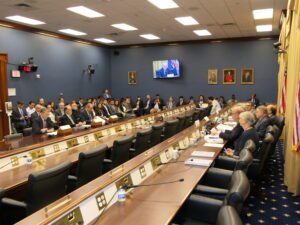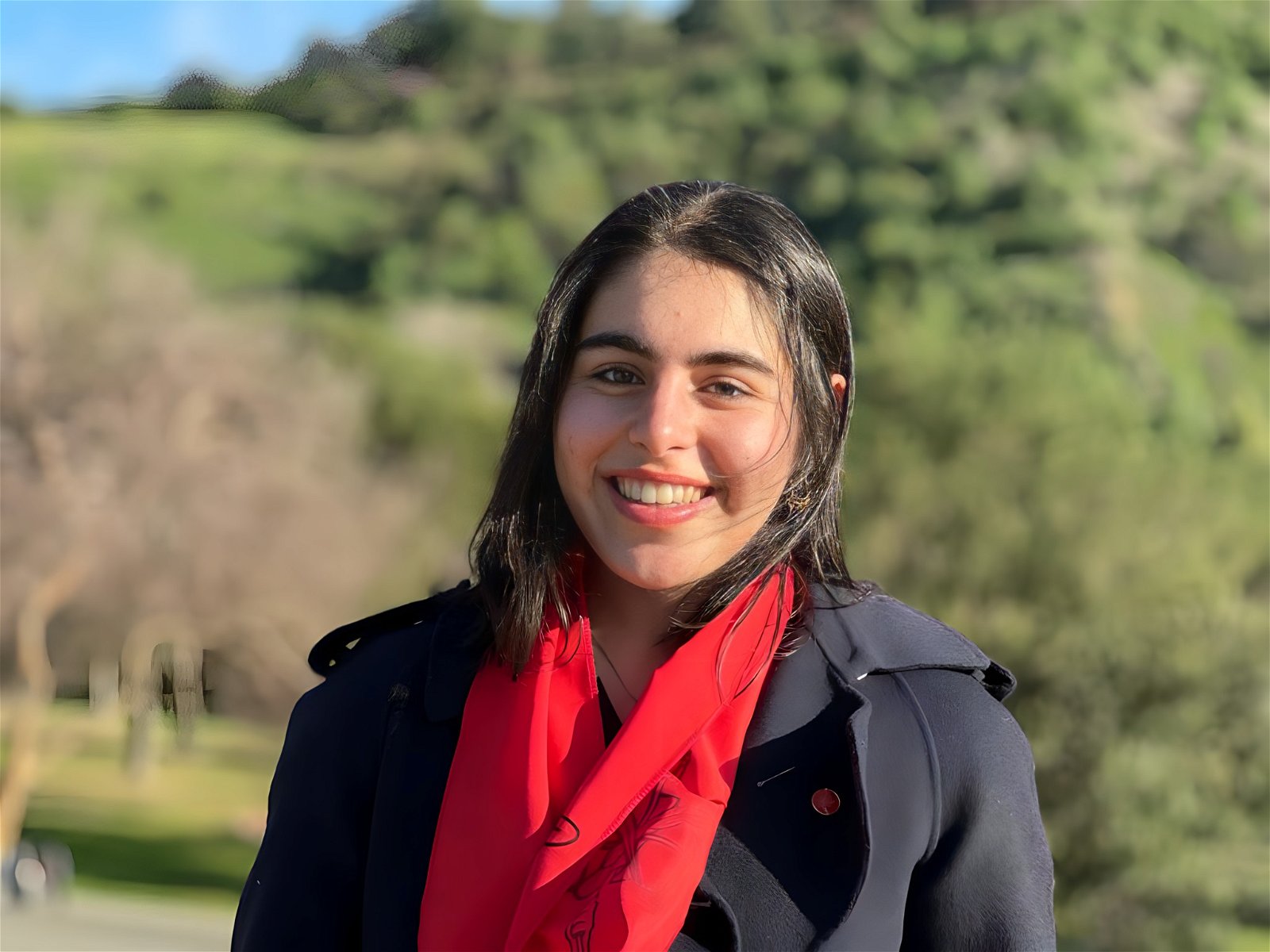
On June 21, the Tom Lantos Human Rights Commission (TLHRC) held a powerful hearing condemning Azerbaijan’s ongoing aggression against Artsakh and urged US action to prevent a second Armenian Genocide in Artsakh. Titled “Safeguarding the People of Nagorno-Karabakh,” the hearing was hosted by Commission co-chairs, Congressman Christopher Smith (R-NJ) and Congressman James McGovern (D-MA), who were joined by Congressional Armenian Caucus co-chairs Gus Bilirakis (R-FL) and Frank Pallone (D-NJ). Witnesses from the hearing were former US Ambassador-at-Large for International Religious Freedom Sam Brownback, former US Ambassador to Armenia John Evans, American Enterprise Institute Senior Fellow Michael Rubin, and Columbia University Director of the Peace-Building and Rights Program, Institute for the Study of Human Rights, David Phillips.
Following are the five key takeaways from the hearing and relevant US policy recommendations.
1) Enforcing Section 907
Background: Section 907 of the FREEDOM Support Act, adopted in 1992, “bans any kind of direct United States aid to the Azerbaijani government,” citing Azerbaijan’s ongoing aggression and blockade of Armenia and Artsakh. In 2001, the presidential waiver clause was adopted by Congress, and it has been waived by US presidents ever since, greenlighting Azerbaijani aggression towards Armenia and Artsakh with the support of US military weapons and American tax dollars.
Policy recommendations: All four witnesses called for the enforcement of Section 907, especially if Azerbaijan does not lift the Artsakh blockade. Notably, Rubin stated that the waiver does not enable diplomacy but rather invites aggression and harms American credibility.
Implications for the Armenian people: With Azerbaijan’s 200+ day blockade continuing with no end in sight, enforcement of Section 907 would send a firm message to the Azerbaijani dictatorship, underscoring that there are consequences for its aggressive and violent actions. It is likely that Azerbaijan and its brother state, Turkey, would rethink their behavior in Artsakh and consider easing their onslaught onto Armenian land through an “environmental protest.”
2) Condemning Azerbaijan’s Blockade of Artsakh’s 120,000 Christian Armenians
Background: Amb. Brownback, who had visited Armenia’s border city Jermuk the week prior to the hearing, described seeing Azerbaijani forces on nearby hills and, consequently, alluded to the pan-Turkic aspirations of the Azerbaijani leaders. Having served as Ambassador-at-Large for International Religious Freedom, Brownback noted the religious component of the crisis in the homeland, stating that Armenia, a Christian community in the region, is being suffocated by surrounding Muslim countries attempting to drive Armenians out of their indigenous homes with the use of US weaponry.
Policy recommendations: While condemnation is an important first step in recognizing the genocidal actions of Azerbaijan and Turkey in Artsakh and Armenia, statements become meaningless unless followed by action. Amb. Brownback suggested a bipartisan “Nagorno-Karabakh Human Rights Act,” which outlines a standard to ensure human rights and security are respected by Azerbaijan. Secondly, he suggested sending a congressional delegation to visit Artsakh, noting that if Azerbaijan blocked such a delegation, it would send a powerful message to the Biden Administration. Lastly, he urged the broader American faith community to stand for Artsakh to ensure the Christian community in the Caucasus continues to thrive in its ancestral lands. Amb. Evans, previous US Ambassador to Armenia, Congressman Bilirakis, and Rubin suggested halting F-16 sales to Turkey, noting, among other reasons, their use against Artsakh and Armenia in the 2020 war.
Implications for the Armenian people: A condemnation of the blockade alongside tangible punishments to quash Azerbaijan and Turkey’s pan-Turkic aspirations would limit the two nations’ assumed leverage in the region through United States appeasement. As Phillips soundly mentioned during the hearing, Turkey and Azerbaijan only act under duress, so the United States must maintain the pressure, including through sanctions, and veer away from rewarding unstable, authoritarian governments.
3) Preventing a Second Armenian Genocide
Background: Azerbaijan’s ultimate aim in Artsakh, Rubin noted, is to empty the land of its native Armenian population, making life unlivable through the use of physical and psychological attacks. He quoted President Aliyev clearly stating, “Now the great return program for Karabakh is being implemented. Inshallah, there will come a time when we develop a second great return program to greater Azerbaijan… we will drive them away like dogs.” Additionally, Pres. Aliyev’s wife, the vice president of Azerbaijan, has been recorded encouraging Aliyev to prevent the release of Armenian prisoners of war to maintain leverage, despite the November 9, 2020 trilateral agreement.
Policy recommendation: Phillips, Rep. Smith and Rep. Pallone called for national and individual sanctions against Azerbaijan, adding these actions play a critical role in bringing aggressive and expansionist behavior under control.
Implications for the Armenian people: Azerbaijan and Turkey must feel tangible consequences in order to rethink their genocidal policies towards Armenia and Artsakh, especially if they manifest in a shift in standing within the Western world.
4) Sanctioning Azerbaijan
Background: As of April 23, 2023, Azerbaijan added an illegal checkpoint to the Berdzor Corridor, and on June 23, placed concrete blocks along the road, preventing any form of humanitarian aid from being delivered to Artsakh. All Congressmen and witnesses from the hearing warned of the worsening, systematic humanitarian crisis. Since the start of the blockade, Turkey has supported Azerbaijan in this endeavor, and with its NATO membership, utilized its status as a free pass to continue pursuing anti-democratic measures, violating human rights standards and conducting actions against US. interests, noted Phillips.
Policy Recommendations: The Humanitarian Corridors Act, which prohibits funds in the form of foreign assistance from being offered to any country whose government prohibits or restricts the transport or delivery of US humanitarian assistance, has not been waived. Rubin said US assistance to Azerbaijan should stop immediately. Another suggestion was the enforcement of the Magnitsky Act, which authorizes the US government to sanction foreign government officials who commit human rights abuses by freezing their assets and banning them from entering the US.
Implications for the Armenian people: If the United States claims to be a defender of democracy, it must eliminate double standards that have arisen from abandoning laws in place, such as the Humanitarian Corridors Act, Section 907 and Magnitsky Sanctions.
5) Protecting Armenian Cultural Heritage
Background: Armenian cultural heritage, both past and present, continues to be decimated by the Turkish and Azerbaijani governments, with examples present in Western Armenia, Nakhichevan and Artsakh. For example, in December of 2021, the International Court of Justice ordered all necessary measures to prevent and punish the desecration and acts of vandalism affecting Armenian cultural heritage. Azerbaijan, ignoring this order, desecrated the 18th century Saint Sargis Church in the fall of 2022 in Artsakh. Citing examples of destruction from the past, Phillips warned that further Azerbaijani occupation risks the elimination of Armenian artifacts and conversions of Armenian churches to mosques.
Policy recommendation: Rubin suggested a 24/7 video monitoring program put in place to ensure the Azerbaijani government is unable to covertly destroy pieces of Armenian cultural history.
Implications for the Armenian people: It is essential to hold Azerbaijan accountable to ensure the survival of Armenian cultural history. To do otherwise would condemn the physical evidence of our past to vanish at the hands of Turkey and Azerbaijan.



Ms. Hamparian,
Thank you your detailed and informative update.
Keep up the good work.
Now if Armenians can get the policy recommendations put into action it would benefit Armenians/Artsakh greatly.